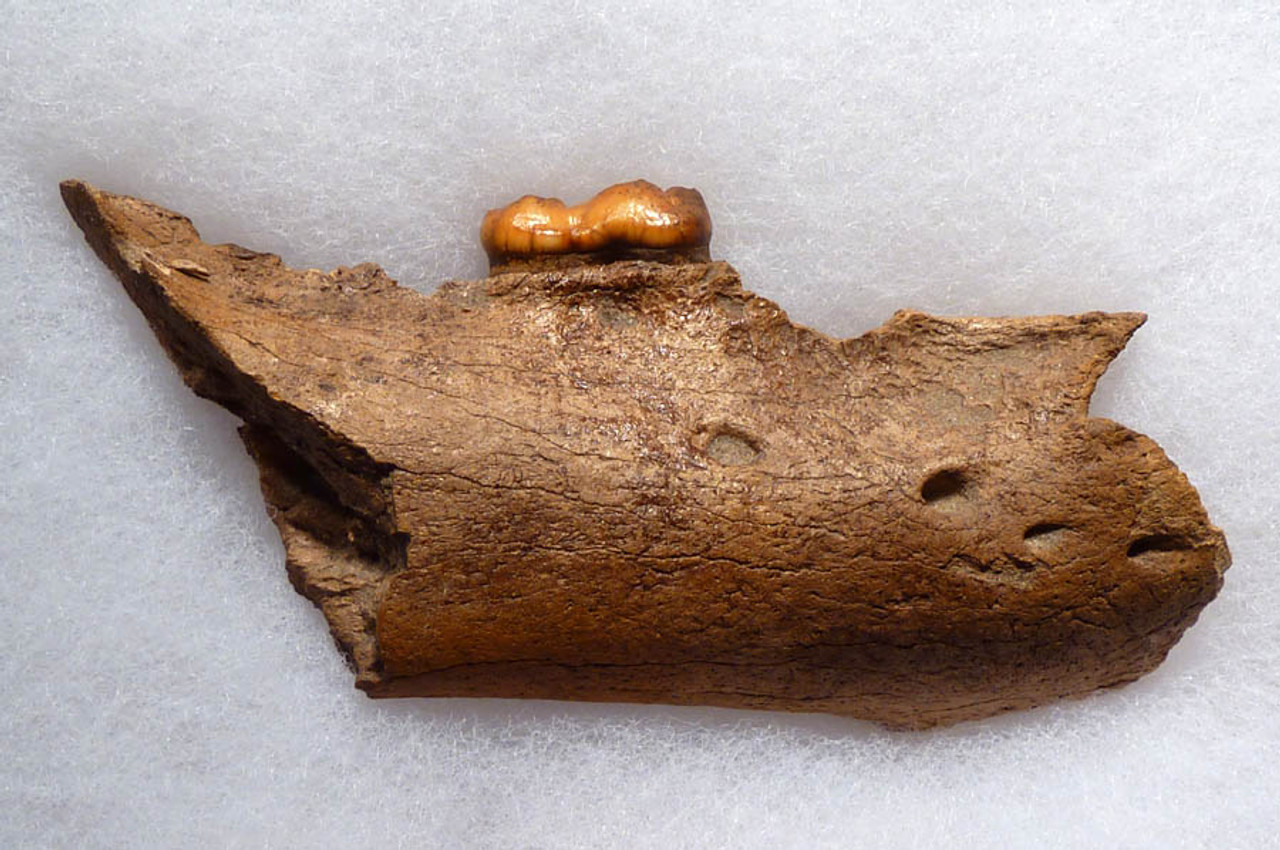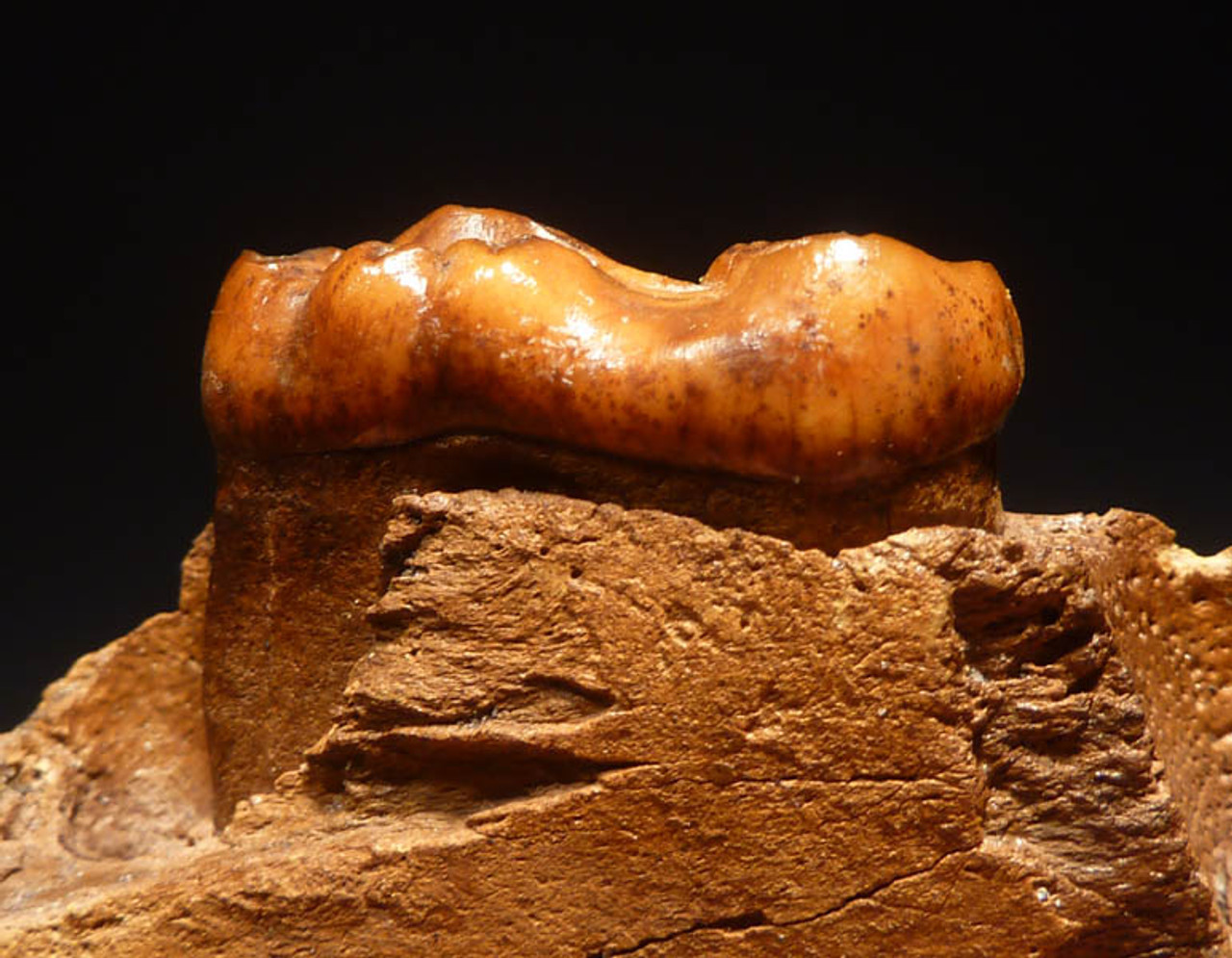Product Description
In an extraordinary discovery of a fossil site that may one day be deemed the "La Brea of the Southeast U.S." comes this very rare fossil specimen of a nearly complete fossil mandible of a Pleistocene Black Bear, Ursus americanus. The genus Ursus was the last bear of Eurasia to migrate to North America. Fossils of the extinct Short-Face Bear are very rare but even more rare are the fossils of the Black Bear from the Late Pleistocene era. While this bear is still alive today, prehistoric remains of this bear are highly uncommon and make for a very rare addition to prehistoric mammal fossil exhibits. Fossil collections showing the varieties of prehistoric bears seldom have any fossils of this species in their inventory including museum collections.
The rarity of this fossil prehistoric bear jaw cannot be overstated as remains like this from Ursus americanus are so incredibly scarce! This certainly will be amongst your rarest specimens as very few fossils of ANY type are found or offered from this bear.
As of this moment, the site is not yet published but is currently under study for future scientific publishing. It is a submerged limestone fissure river deposit that has yielded an incredible wealth of fossils from both apex predators right down to small preyed upon rodents and amphibians. The vast majority of the collection will NOT be made available for sale. It was likely once a large rock shelter at the water's edge that over time, had been home to a variety of predators and smaller creatures that either were killed and dragged in as prey or scampered about along the larger beasts such as short-faced and black bear as well as jaguar. In some areas, the site has yielded the kinds of small and delicate specimens that were unheard of before in the southeastern United States fossil record. This rare fossil has been decommissioned from the study collection but it is truly a rare offering of the likes that you will probably rarely if ever see again in the life of an active collector. On a very limited basis, we will be offering a few pieces of this rare site discovery. ALL fossils from this site will be highly unusual in their type and condition of completeness. In many cases, you may never see again some fossils of certain animals ever again so advanced collectors and museums should take note at the diversity of what we will offer from this collection.
 US DOLLAR
US DOLLAR
 EURO
EURO
 AUSTRALIAN DOLLAR
AUSTRALIAN DOLLAR
 CANADIAN DOLLAR
CANADIAN DOLLAR
 POUND STERLING
POUND STERLING














